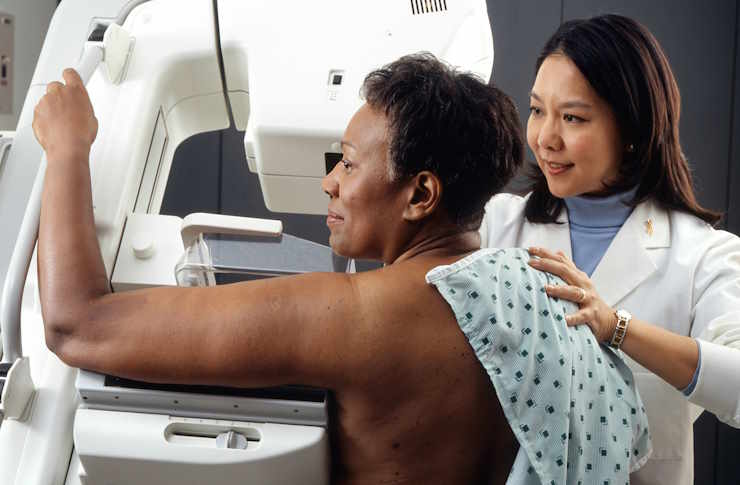Early Symptoms and Warning Signs of Colon Cancer
Colon cancer remains a significant health concern in the United States in 2026. Early detection improves treatment outcomes, but symptoms can be subtle. Understanding the common early signs may help individuals recognize potential issues and seek medical evaluation when necessary.

Persistent Changes in Bowel Habits
One of the early indications of colon cancer involves ongoing changes in bowel habits lasting more than a few weeks. These changes can include diarrhea, constipation, or a feeling of incomplete bowel evacuation. Such persistent alterations may signal disruptions caused by polyps or tumors affecting colon function. In the U.S., adults aged 45 and older, or those with a family history of colorectal cancer, are advised to note any unexplained changes in bowel patterns.
Presence of Rectal Bleeding or Blood in Stool
Rectal bleeding or visible blood in stool is an important symptom to monitor. Blood may appear bright red or cause stools to look black or tar-like (melena), which indicates bleeding in the upper colon or rectum. While hemorrhoids and anal fissures are common causes of rectal bleeding, ongoing or unexplained bleeding should prompt further medical examination. Health experts in the U.S. recommend evaluation if bleeding persists beyond several weeks to rule out malignancy or other serious conditions.
Unexplained Weight Loss and Fatigue
Sudden and unexplained weight loss of 10 pounds or more, accompanied by fatigue, can be associated with colon cancer. Cancer cells may consume nutrients the body needs, resulting in weakness and energy depletion. Although these symptoms are not exclusive to colon cancer and may relate to other illnesses, their presence alongside other warning signs merits medical attention, especially among high-risk populations.
Abdominal Discomfort and Pain
Persistent abdominal pain, cramps, or bloating can be early warning signs of colon cancer. Pain may result from obstruction caused by tumor growth or inflammation in the colon wall. In the U.S., individuals experiencing consistent or severe abdominal discomfort without an apparent cause are advised to seek professional evaluation, as early diagnosis can help improve treatment options.
Anemia and Related Symptoms
Colon cancer can cause slow, chronic bleeding in the digestive tract, leading to iron deficiency anemia. Symptoms of anemia may include pale skin, dizziness, shortness of breath, and irregular heartbeats. Screening blood tests can detect anemia, which in the context of other symptoms, could indicate colon cancer. Medical providers in the U.S. often consider anemia an important factor when assessing potential colorectal disease, especially in adults over 50.
Increasing Incidence in Younger Adults
In recent years, research has noted a rise in colon cancer cases among adults younger than 50 in the United States. This early onset colorectal cancer comprises approximately 10% of new cases annually and tends to be diagnosed at later stages due to lack of routine screening in this age group. Current guidelines recommend beginning screening at age 45 to address this trend and improve early detection rates.
Importance of Regular Screening
Most early colon cancer cases do not produce symptoms, which makes regular colorectal cancer screenings a critical component of preventive health care in the U.S. Screenings such as colonoscopy, stool-based tests, and imaging can identify precancerous polyps or cancer at treatable stages. Healthcare providers typically recommend screening starting at age 45 for average-risk adults and earlier for those with family history or other risk factors.
Understanding Risk Factors for Colon Cancer
Risk factors for colon cancer include age, family history of colorectal cancer, personal history of polyps or inflammatory bowel disease, certain genetic syndromes, diet, obesity, sedentary lifestyle, smoking, and alcohol consumption. Recognizing these risk factors helps inform decisions about screening and surveillance practices in clinical settings across the United States.
Diagnostic Procedures
When symptoms or screening tests suggest possible colon cancer, diagnostic procedures are used to confirm the diagnosis and determine cancer staging. These include colonoscopy with biopsy, imaging studies such as CT scans, and blood tests including carcinoembryonic antigen (CEA) levels. Accurate staging guides treatment planning and prognosis evaluation.
Typical Costs in United States (2026)
When considering colon cancer-related testing and care in the United States, typical price ranges vary:
- Basic option: Stool-based screening tests (such as fecal immunochemical test) range from approximately $20 to $150, suitable for initial non-invasive screening.
- Standard option: Colonoscopy costs typically range between $1,000 and $3,000, including the procedure and pathology fees for biopsies.
- Premium option: Advanced imaging and genetic testing associated with comprehensive diagnostic workup can cost $3,000 or more, depending on the complexity of testing and insurance coverage.
These costs may vary by location, provider, and insurance status.
Summary
In 2026, colon cancer remains a significant health concern in the United States. Early symptoms often include changes in bowel habits, rectal bleeding, unexplained weight loss, abdominal discomfort, and anemia. Awareness of these signs, combined with adherence to screening recommendations, supports timely diagnosis and potentially better outcomes. Healthcare providers consider individual risk factors when making screening and diagnostic decisions.




